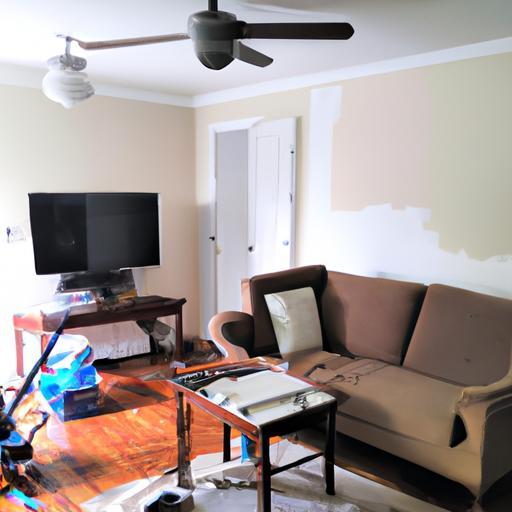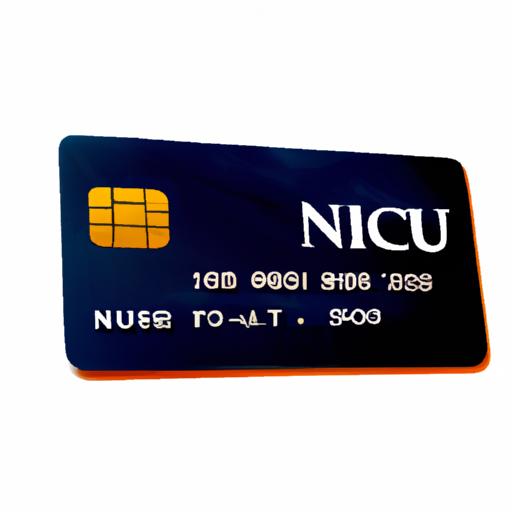Best Loans for Home Improvement: Transforming Your Home with the Right Financing
Introduction
Are you looking to breathe new life into your home through exciting renovations or upgrades? Home improvement projects can be a fantastic way to enhance your living space and increase the value of your property. However, embarking on these projects often requires a significant financial investment. This is where home improvement loans come into play, offering you the necessary funds to turn your renovation dreams into reality.
When it comes to home improvement loans, finding the best option for your specific needs is crucial. The right loan can make all the difference in ensuring a smooth and successful renovation process. From personal loans to home equity lines of credit, there are various financing options available to homeowners. Understanding the different types of loans and the factors to consider when choosing one can help you make an informed decision and secure the best loan for your home improvement project. Let’s delve deeper into the world of home improvement loans and discover how to find the perfect financing solution for your renovation endeavors.
Types of Home Improvement Loans
Personal Loans
When it comes to financing your home improvement project, personal loans offer a flexible and convenient option. These unsecured loans do not require any collateral and can be used for a variety of purposes, including renovations, repairs, and upgrades. Personal loans typically have fixed interest rates and repayment terms, making it easier to budget for your project.
Home Equity Loans
Home equity loans allow homeowners to borrow against the equity in their property. This type of loan typically offers lower interest rates than personal loans because the home serves as collateral. Home equity loans are ideal for larger renovation projects that require substantial funding and can be repaid over a set period of time.
Home Equity Lines of Credit (HELOC)
Similar to home equity loans, HELOCs allow homeowners to borrow against the equity in their property. However, HELOCs function more like a credit card, with a revolving line of credit that can be drawn upon as needed. This flexibility makes HELOCs a versatile option for ongoing or unpredictable home improvement expenses.
FHA Title I Loans
FHA Title I loans are backed by the Federal Housing Administration (FHA) and are specifically designed for home improvement projects. These loans are available to homeowners with limited equity and can be used for a wide range of renovations, from minor repairs to major upgrades. FHA Title I loans offer competitive interest rates and flexible terms, making them a popular choice for many homeowners.
Energy-Efficient Mortgages
Energy-efficient mortgages incentivize homeowners to make energy-efficient upgrades to their property. These loans provide additional funds for energy-saving improvements, such as solar panels, insulation, or energy-efficient appliances. By investing in energy-efficient upgrades, homeowners can not only enhance their living space but also reduce their energy costs in the long run.
Factors to Consider When Choosing a Home Improvement Loan
Interest Rates
When selecting a home improvement loan, one of the most critical factors to consider is the interest rate. The interest rate will determine the total cost of borrowing and affect your monthly payments. Compare rates from different lenders to find a competitive option that fits your budget.
Loan Terms
Loan terms refer to the duration of the loan and how long you have to repay the borrowed funds. Longer loan terms may result in lower monthly payments but could end up costing you more in interest over time. Shorter terms typically have higher monthly payments but can help you save on interest costs in the long run.
Fees and Closing Costs
Before finalizing a home improvement loan, be sure to review the associated fees and closing costs. These expenses can add up and impact the overall affordability of the loan. Look for lenders that offer transparent fee structures and competitive closing costs to ensure you’re getting the best deal.
Credit Score Requirements
Your credit score plays a significant role in determining your eligibility for a home improvement loan and the interest rate you’ll receive. Lenders typically have minimum credit score requirements, so it’s essential to know where you stand before applying. Improve your credit score if needed to qualify for better loan terms and rates.
Loan Amounts Available
Consider the loan amounts available from different lenders to ensure you can secure enough funds for your home improvement project. Some lenders may have maximum loan limits, so choose a lender that can accommodate the financing needs of your renovation plans. Compare loan amounts and eligibility requirements to find the right fit for your project.
Comparison of Top Lenders Offering Home Improvement Loans
Lender A
- Interest Rates: Lender A offers competitive interest rates that can make financing your home improvement project more affordable. It’s essential to compare these rates with other lenders to ensure you’re getting the best deal.
- Loan Terms: Understanding the loan terms is crucial in determining the overall cost and repayment schedule. Lender A may offer flexible terms that align with your financial situation and renovation timeline.
- Customer Reviews: Before committing to a lender, it’s beneficial to read customer reviews to gauge the overall satisfaction and experience of borrowers who have worked with Lender A.
Lender B
- Interest Rates: Lender B’s interest rates may vary from other lenders, so it’s essential to compare and contrast to find the most competitive option for your home improvement loan.
- Loan Terms: The loan terms provided by Lender B can impact the overall affordability and feasibility of your renovation project. Understanding these terms is crucial before making a decision.
- Customer Reviews: Hearing from other borrowers about their experiences with Lender B can provide valuable insights into the quality of service and satisfaction levels.
Lender C
- Interest Rates: Lender C’s interest rates may offer unique benefits or drawbacks compared to other lenders. It’s essential to assess these rates to determine the most cost-effective financing option.
- Loan Terms: The loan terms provided by Lender C can influence the overall affordability and manageability of your home improvement loan. Understanding these terms is essential for making an informed decision.
- Customer Reviews: Reading customer reviews about Lender C can give you a better understanding of the overall customer experience and satisfaction levels. This insight can help you decide if Lender C is the right choice for your renovation financing needs.
Tips for Getting Approved for the Best Home Improvement Loan
Improve Your Credit Score
Before applying for a home improvement loan, it’s essential to take steps to improve your credit score. A higher credit score can increase your chances of qualifying for a loan with favorable terms and lower interest rates. Paying off existing debts, making timely payments, and monitoring your credit report for any errors are effective ways to boost your credit score and enhance your financial profile.
Shop Around for the Best Rates
Don’t settle for the first loan offer you come across. Take the time to shop around and compare rates from multiple lenders to ensure you’re getting the best deal possible. Different lenders may offer varying interest rates and terms, so conducting thorough research and obtaining quotes from several sources can help you find a loan that aligns with your budget and needs.
Have a Clear Plan for Your Home Improvement Project
Having a well-defined plan for your home improvement project can not only help you determine the exact amount of funding you need but also demonstrate to lenders that you are serious and prepared. Outline the scope of your renovation, create a detailed budget, and prioritize the key aspects of your project to ensure you’re requesting the right loan amount for your specific requirements.
Gather All Necessary Documents Before Applying
To expedite the loan application process and increase your chances of approval, it’s crucial to gather all the necessary documents beforehand. This may include proof of income, tax returns, bank statements, and any other financial documentation requested by the lender. Being organized and prepared can streamline the application process and help you secure the best home improvement loan for your project.






